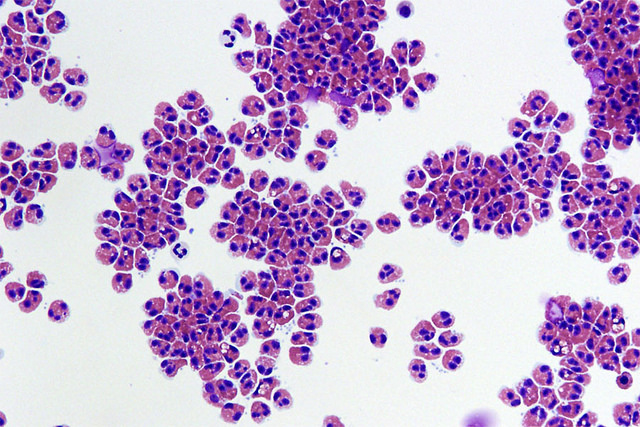Atrial fibrillation (an abnormal rhythm in the upper chamber of the heart) is a common supraventricular arrhythmia (a type of abnormal heart rhythm) for which antiarrhythmic therapy is often prescribed. The primary goals of therapy are to maintain sinus rhythm (normal heart rhythm) and to reduce the occurrence of episodes of atrial fibrillation. Azimilide may have an effect on increasing the time to first recurrence of symptomatic atrial fibrillation or atrial flutter and symptomatic paroxysmal supraventricular tachycardia (other types of abnormal heart rhythms).
Official Title
Conditions
– Atrial Fibrillation
Study Type
Interventional
Study Design
Treatment, Randomized, Double-Blind, Placebo Control, Parallel Assignment, Safety/Efficacy Study
Further Details
This double-blind, placebo-controlled study is designed to evaluate the efficacy and safety of azimilide compared with placebo in prolonging the time to the first symptomatic arrhythmia recurrence in patients with a history of atrial fibrillation and congestive heart failure and/or ischemic heart disease) and those without these conditions. Once this phase of the study is completed, a second phase with a different study design will be conducted. The second phase is an open-label, follow-up phase. The follow-up phase of the study is designed to evaluate the long-term efficacy and safety of a daily oral dose of azimilide in patients who complete the double-blind, placebo-controlled phase of this study.
Study Start
Eligibility & Criteria
Ages Eligible for Study: 18 Years and above, Genders Eligible for Study: Both Criteria Inclusion criteria:History of symptomatic atrial fibrillation that significantly disrupts the patient’s customary daily living activities History of congestive heart failure and/or ischemic heart disease Sinus rhythm (normal heart rhythm) upon entry to the 30 day screening period for the study At least one episode of symptomatic atrial fibrillation during the screening period, with a spontaneous return to sinus rhythm. Sinus rhythm immediately prior to dosing Exclusion criteria:Previously unsuccessful cardioversions within 60 days of screening period Failed to respond to any Class III antiarrhythmic drugs Qualifying arrhythmia due to acute reversible illness, acute myocardial infarction, and/or cardiac or thoracic surgery within one month prior to randomization Previously in an azimilide study
Total Enrolment
660
Contact Details
[1] Procter & Gamble Pharmaceuticals
All content and media on the HealthEngine Blog is created and published online for informational purposes only. It is not intended to be a substitute for professional medical advice and should not be relied on as health or personal advice. Always seek the guidance of your doctor or other qualified health professional with any questions you may have regarding your health or a medical condition. Never disregard the advice of a medical professional, or delay in seeking it because of something you have read on this Website. If you think you may have a medical emergency, call your doctor, go to the nearest hospital emergency department, or call the emergency services immediately.







